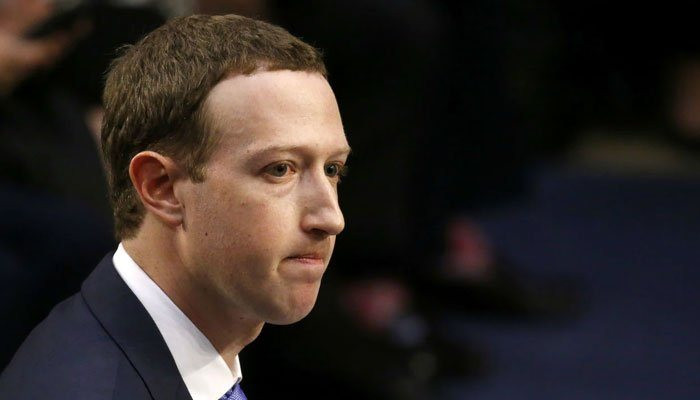Even in a dream, Mark Zuckerberg couldn’t believe that the parent company TikTok was quietly conquering the field of virtual universe – which is considered the future of Meta.
- Tram Ho
In addition to social networks, Mark Zuckerberg may also lose to parent company TikTok in the field of virtual reality.

According to the WSJ, TikTok owner ByteDance is starting to gain market share in the field of virtual reality headsets, which US giant Meta Platforms has identified as very important to the future of the group.
Two years ago, ByteDance acquired Pico, a Chinese startup that makes VR headsets. The deal opened a new front in the Chinese company’s competition with Meta. In fact, the parent company Facebook and Instagram are also vying for users and advertising money with TikTok as the short video application grows in popularity.
According to industry data, Pico’s headphone shipments have skyrocketed, making it a small but fast-growing company in the 2nd place behind Meta in the global market. In particular, Pico has never sold its consumer headphones in the US.
In 2021, CEO Mark Zuckerberg changed Facebook’s name to Meta partly to reflect his bet on the metaverse, a more immersive version of the Internet experienced largely through a real headset. virtual reality.
The company spent a lot of money on that ambition. In its latest quarterly results, Meta says that there are more than 200 apps on their VR devices that generate more than $1 million in revenue per app. Still, overall revenue in Meta’s Reality Labs segment fell 17% in the quarter due to lower sales of the Quest 2 headset.
Just a year ago Meta held a 90% market share, according to research firm International Data Corp. By the third quarter of 2022 – the closest time period for which data is available – Meta’s market share had dropped to around 75%. Pico’s market share more than tripled over the same period to around 15%. No other VR headset maker holds more than 3% of the market.
IDC data shows that Meta’s headset shipments in the third quarter fell 48% from a year earlier. ByteDance’s Pico is the only headphone maker to increase shipments, in a market estimated to be worth $4 billion by 2022.
A spokesperson for Meta said: “We are pleased that consumers have more ways to experience VR, because when they do, it helps foster the ecosystem, which in turn encourages developers to create produce more great content.”
ByteDance’s foray into the virtual reality headset market comes at a difficult political time for the company. The Beijing-based business is being targeted by officials and politicians who have voiced concerns the Chinese government could use TikTok data to spy on Americans. TikTok’s app has been banned on federal government devices, while some Biden administration officials want to try to force the sale of TikTok to a US company.
Pico offers the headset for personal use in Europe and Asia, markets that are more open to devices from Chinese companies than the US. Consumers in those markets were intrigued by Pico in part because last year, Meta announced a $100 price increase for the Quest model. After the price increase, Quest 2 costs 399 USD. Pico’s mainstream consumer headphones retail for the equivalent of $450. Pico is also available in a number of foreign markets where Meta’s equipment was not available before.
The latest data doesn’t reflect sales of Pico’s newest consumer headset model, the Pico 4, which was released to rave reviews in October. Meta also released a new headset in October. 10, Quest Pro, aimed at professionals, retails for $1,500.
Competitive strategy is also getting hotter and hotter. Apple is expected to launch augmented reality headsets later this year, and Microsoft Corp. offers a mixed reality headset for businesses called HoloLens. The headphone market is expected to become a $16 billion industry by 2026, according to IDC.
“The space will become crowded with competitors with good potential. So it’s going to be very difficult for Pico,” said Rolf Illenberger, chief executive officer of virtual reality software company VRdirect.
Offering multiple apps is vital to making the VR platform compelling, and Pico is still in the early days of expanding its portfolio. They currently have around 250 apps available – compared to more than 400 in the Quest app store. The company also introduced a social app called Pico Worlds, similar to Meta’s Horizon Worlds.
Sonam Mobbs, a 40-year-old IT support worker in Northampton, UK, bought the Quest 2 headset on the day it launched in 2020. He played games every day with the device until Pico 4 was released. for sale where he lives.
“The biggest difference I notice when you switch between the two is clarity,” he says. “The lens on the Pico 4 is better.” Mr. Mobbs, who claims to spend at least five hours a week playing virtual reality games, put his Quest 2 up for sale on eBay three weeks after he started using the Pico device.
The company’s website says Pico was founded in 2015 and initially focused on business headsets. In May 2022, following the acquisition by ByteDance, Pico announced it would begin selling consumer devices in Europe and throughout Asia. Previously, Pico only sold consumer headphones in China. Pico also sells higher-end headsets to businesses located in the US, as well as other markets around the world.
Glenn Kachmar, 55, of Vancouver, Canada, who teaches classes using VR, said he used Quest 2 until he heard about Pico last year. He ordered a device not sold in Canada, from Spain.
“The Pico is definitely a better headset in many ways,” he said, referring specifically to the screen resolution and the fit on the head. But he was reluctant to give up Pico’s product, saying their device didn’t offer as many games as Quest and that the games he had purchased weren’t ported to Pico.
Source: WSJ
Source : Genk
